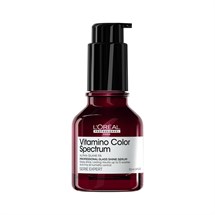Menu

Top Tips For Managing Your Finances
.png)
There are around 250,000 hair and beauty professionals in the UK with over 50% being freelance*. With no rent, bills or employees to pay, it costs very little to run a mobile beauty business and you get to keep all the profits yourself. BOOM, right?
Yes, but there are those little things like cash flow, VAT, tax returns, expenses… It can all seem a little daunting but by putting a few simple things into practice and keeping on top of your finances you can say goodbye to the account’s anxiety.
We’ve pulled together our top tips to help you manage your finances:
1. Register as self-employed
You want to keep it all above board so don’t forget to register as self-employed – you need to do this within 3 months of working for yourself and receiving payment from your first invoice.
Registering is an easy process done via the HMRC website.
2. Keep a record of all your receipts
Software like Quickbooks and Xero all have easy to use phone apps that allows you to record your expenses as you go along. Every time you make a business purchase just snap a picture of the receipt and save. No more bulging wallets full of receipts and a rushing as self-assessment time comes around.
These apps can also help you see you manage your income by keeping track of bills, payments and profit & losses.
TOPTIP: Remember to keep your documents for at least five years in case HMRC request to see them.
3. Claim all of your expenses
So many freelancers pay more tax than they need to because they don’t think to declare all of their expenses. All work-related expenses should be claimed when you're filling in your tax returns. Just be sure to keep all of your receipts (see point number 1!) and invoices in case you need to provide evidence!
Make sure you know what you can claim. Things like:
· Hair and beauty products
· Uniform
· Travel expenses
· Training
· Marketing and advertising
· Insurance
· Mobile phone and landline - business use
· Fuel and vehicle running costs
· Accountant fees
Make yourself aware of all the business expenses you’re allowed to claim, or you could be losing out.
4. Separate your personal finances from your business finances
Although managing personal & business finances from the same bank account may seem convenient in the short-term it can cause a lot of headaches long-term.
By keeping separate accounts for each, it is far easier for you to track and manage all incomings & outgoings and pay yourself a salary.
6. Create a separate account for tax and National Insurance
As a self-employed hairdresser or beauty therapist, it’s really important that you put money aside as you earn to cover tax and National Insurance rather than having to cover a bill at the end of the year with no savings. A separate account helps to remove the temptation to dip into over the tax year.
The amount varies depending on your income and expenditure but setting aside between 25-30% of your income should be enough to cover tax and NI payments.
It's useful to keep in mind that the current personal allowance before you pay tax is £12,500 which means you don’t pay anything until you’ve earned this amount over the tax year. This means you can pay yourself up to £1,000 a month without having to pay any tax.
7. Stay organised
Make a note of all the key dates in the financial year ahead. This way you won’t lose track of what you’re meant to be paying and when.
The key dates for the tax year 2020/2021 are:
· 6 April 2020 – first day of the new 2020/2021 financial year
· 31 July 2019 - deadline for payments on account for Income Tax
· 31 October 2019 - deadline for postal submission of Self-Assessment tax returns for tax year ended 5 April 2020
· 31 January 2021 - deadline for filing Self-Assessment Tax Returns for tax year ending 5 April 2020
· 5 April 2021 - end of the 2020/2021 financial year

8. Batch process your financial tasks
“I’m going to get to it later”
“I’ve got loads of time before the deadline”
Don’t lie to yourself, you know that’s not going to happen! Ignoring your financial responsibilities doesn’t mean that they will go away. In fact, the longer you ignore them, the more unmanageable they become.
Put aside one day of the month for finances. On this day you will do nothing else but go through your pile of invoices, bills, and payments.
9. Review your pricing regularly
Product price increases, fuel costs, the value of your time and work. These are all things to consider when you are pulling together your pricing. Increasing rates without losing business can be stressful because you never know how your clients will react.
But remember your price should be reflective of the value of your work and even though you won’t have the same overhead costs of a salon you still need to recoup the expenses you have to cover as part of your running your business. You could consider charging a small amount towards fuel expenses for those outside a certain radius, or increasing your margins on certain services like full head of highlights or nail art.
10. Take a free course
Even with helpful tips and guides like this it can be really confusing when you’re self-employed. HMRC run a series of free webinars that include everything from tracking your businesses expenses to how to complete and submit your self-assessment.
So, there you have it, our top finance tips for freelance hair and beauty professionals. For more advice and inspiration, head over to www.capitalhairandbeauty.co.uk/inspiration.
New & Trending
NEW
Delivery
Collection
Please login to your account to check stock in your local store.
OFFER
NEW
Delivery
Collection
Please login to your account to check stock in your local store.
FREE DEVELOPER
MORE OPTIONS
NEW
NEW
NEW
NEW
OFFER
NEW
Delivery
Collection
Please login to your account to check stock in your local store.
FREE DEVELOPER
NEW
Delivery
Collection
Please login to your account to check stock in your local store.
NEW
Delivery
Collection
Please login to your account to check stock in your local store.
Freelance Focus
Freelance Focus, is a one stop resource for anyone working as a freelancer or thinking of going freelance in the hair & beauty industry, which includes a FREE downloadable guide filled with advice, useful insights, experiences and tips (from experienced freelancers) to help you understand the steps needed to make the right choices for you.
Back to Posts
Tags
- 2024
- acne
- allergies
- apps
- autumn
- awards
- balayage
- blonde
- braids
- bridal
- brows
- business
- capital & me
- care
- career
- celebrities
- christmas
- chrome
- clean
- collection
- color wow
- colour
- colours
- conditioner
- covid-19
- crazy color
- curls
- facial
- fanola
- fashion
- festival
- finance
- floral
- freelance
- gel
- gellux
- get the look
- goldwell
- hair
- halloween
- indola
- interview
- k18
- lashbase
- lashes
- lob
- loreal
- loyalty
- make up
- manicure
- marketing
- men
- mens
- mental health
- microblading
- milk_shake
- nail art
- nail trends
- nailart
- nails
- new years
- nioxin
- nxt
- olaplex
- opi
- party
- pedicure
- ponytail
- pulp riot
- redken
- retail
- salon furniture
- salon system
- schwarzkopf
- self-employed
- shampoo
- skincare
- smoothing
- social media
- split-ends
- spring
- step by step
- summer
- sustainability
- tanning
- the met gala
- tigi
- tiktok
- toner
- toning
- top knot
- trends
- tutorial
- updo
- valentines
- veganuary
- wahl
- waxing
- wella
- wellbeing
- winter
Latest Posts
- Butter Yellow Is the Colour of the Season
- Vitamino Color Spectrum - Lock In Your Day 1 Colour Vibrancy For Up To 100 Days*
- Week in My Shoes: A Day in the Life of Craig Purves
- Embracing Grey: Expert Tips on Perfecting the Grey Hair Blend Trend
- How to Raise Beauty Prices Without Losing Clients
- Billie Eilish’s Jellyfish Haircut: The Trend Taking Over Salons
- Increase Your Profit - Adding Shinefinity Top Glaze to Every Look
- Top Hair and Beauty Moments from This Year’s Oscars!
- What is Lived-in Blonde and how do I create this for my clients in salon?
- Who Made Waves on the Red Carpet at the Grammys?
Related Posts
How to Raise Beauty Prices Without Losing Clients
Discover why increasing your prices is essential and how to approach it without losing the trust of your clients.
Prioritising your mental health
Going freelance means you’re in charge of your day and get to plan things exactly as you choose. While you might be working alone, you should never feel alone; read on for our tips on keeping your mental state healthy and balanced.
How to set up your at-home salon
There are various ways you can go freelance; while some hair and beauty pros prefer to rent a chair or space in an existing salon, others love the freedom and flexibility of creating their own at-home workspace.
Getting and Retaining Clients as a Freelancer in 2023
Starting your own business can definitely be daunting, but once you’ve got your clientele sorted, you’re halfway there! Here we break down some useful tips to getting and retaining your clients.
Setting up your business: A guide for Freelancers
There are so many reasons for you to consider going freelance but what does it really entail when it comes to the paperwork side of things? Here we share our top tips to get you started.
The Cost of Going Freelance, Mobile, or Independent
With many looking for a more flexible work-life balance, we examine the opportunities available to those within the hair and beauty industry looking to go freelance, mobile or independent in 2021 and beyond.
A Typical Week of a Freelancer in Lockdown - With L'Oréal Professionnel
With lockdown still without a specified end, we spoke to L’Oréal Professionnel Education Manager Nicola Chamberlain about how to make the most of your days and make sure your ready for reopening.
How I Got Here
Have you seen our latest series, How I Got Here, over on IGTV? We've spoken to some incredible hair & beauty professionals who have become the best at what they do.



























